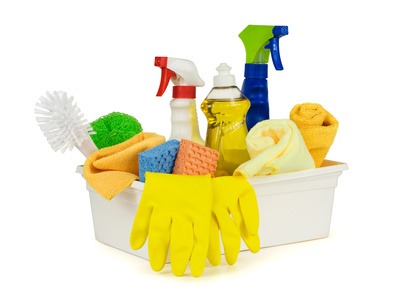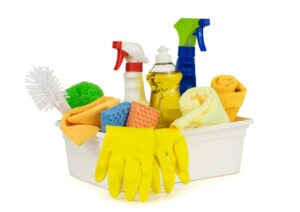
Decision-Making Made Simple
Clutter is delayed decisions – whether it be paper clutter, email clutter, mind clutter or any other type of clutter in your home or office. Piles start because you are postponing making a decision on an item…then another… then another… So how can we simplify the choices that we need to make each day?
Following are 5 tips to help simplify your decision-making and reduce your piles.
Delegate
What could be better done, or used, by someone else? Choose those things that you love to do or love to look at and find someone else to take care of the rest. If you need help determining what to handle yourself and what to delegate, or donate, don’t be afraid to call in a professional or an unbiased friend to assist.
Gain Perspective
Try to step back and see yourself as others see you in your situation. This can serve as a reality check and open your eyes to things you have been avoiding. If you are having trouble with this exercise, find someone you trust and ask for his or her opinion — but be ready for the answers and keep an open mind.
Use a Timer
When a task seems overwhelming, or when you find yourself spending all day researching a decision on the internet or clearing out your email inbox, a timer is a wonderful tool. Set it for 10 minutes, 30 minutes or 1 hour depending on the task. Work diligently during this time to make the appropriate decision(s). The task will seem less overwhelming and take much less energy.
Have a System
Having the appropriate systems and tools in place is very important in simplifying your decision-making. For example, the ART System™ works wonderfully for addressing your paper and electronic “piles.” Every item should either be acted on (or delegated to someone else to act upon), filed away for future reference, or tossed. With effective tools in place that work for your needs and personality, these decisions become much simpler.
Let Go of Perfectionism
You might be surprised at how many of my clients are perfectionists. They say they are cluttered and disorganized because if something can’t be perfect, they don’t want to do it at all. Sound familiar? As a recovering perfectionist myself, I completely understand this feeling. But sometimes you need to determine that ‘good is good enough’ and move on. One way I have found to address this issue within my home is to hire a cleaning lady (see #1 – Delegate). If I clean my own home, I would spend far too much time on the picky details, while she is not only much more efficient at cleaning my home, but she knows when good is good enough.
Another tip for addressing perfectionism is to repeat to yourself a phrase I learned from a mentor, Barbara Hemphill. Barbara often says “Doing something is better than doing nothing at all.” If I didn’t believe and live by this phrase every day, you might not be reading this article right now. Is it perfect? No. Is it good enough. I hope so.


 Today is cleaning day at my house, one of my favorite days of the month. Before you think I’m crazy, I should tell you that I don’t clean my own house…we hire someone to do that chore for us. About 10 years ago when I left my stable corporate career to start my business, my husband and I discussed ways we could cut back on expenses for a while. When the topic of the cleaning lady came up, we both quickly dismissed it as a feasible area to cut. Here’s why…
Today is cleaning day at my house, one of my favorite days of the month. Before you think I’m crazy, I should tell you that I don’t clean my own house…we hire someone to do that chore for us. About 10 years ago when I left my stable corporate career to start my business, my husband and I discussed ways we could cut back on expenses for a while. When the topic of the cleaning lady came up, we both quickly dismissed it as a feasible area to cut. Here’s why…
Recent Comments